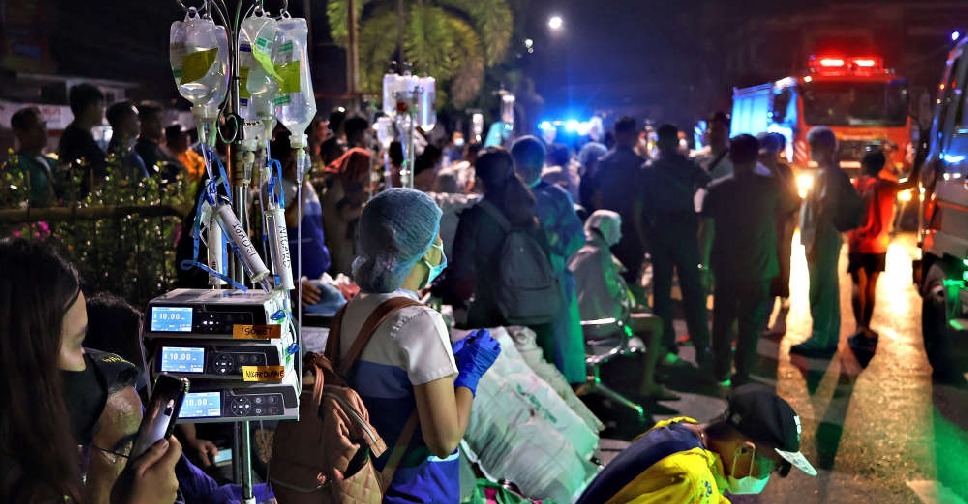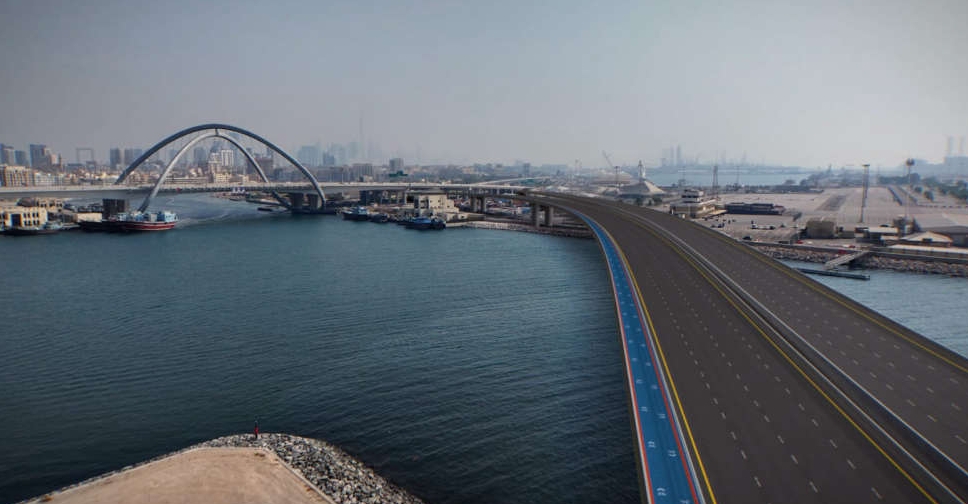
Philippine residents were allowed to return to their homes on Sunday after a magnitude 7.4 earthquake struck the country's south, killing at least one person, with disaster officials reporting minor damage to some infrastructure.
The Saturday night quake shook parts of Surigao Del Sur and Davao Oriental provinces, triggering coastal evacuations and tsunami alerts in the country and in Japan.
A woman was killed when a wall collapsed as she and her family were fleeing their home in search of safety in Tagum city in Davao del Norte province, said disaster official Mon Cabonilas.
"The tsunami threat associated with this earthquake has now largely passed the Philippines," the Philippine Institute of Volcanology and Seismology (Phivolcs) said in a statement but advised people in threatened communities to heed the instructions from local authorities.
In the coastal town of Carrascal in Surigao del Sur, all evacuees have returned to their homes, disaster official Antonio told DWPM radio station. "We are ready in case there is a need to evacuate again."
More than 600 aftershocks were recorded, and Phivolcs urged caution as people resumed normal activities.
The Philippine Coast Guard put all its vessels and aircraft on alert for potential dispatch.
"We started going back to our homes early on Sunday, although we are still shaking because of aftershocks," Julita Bicap, 51, a front desk staffer at GLC Suites hotel in the seaside town of Bislig, said on Sunday morning after power was restored around 5 am (1 am UAE time)
"There are aftershocks even now. Last night we were at the evacuation centre, including my two foreigner guests. One of them came back to the hotel already," Bicap told Reuters, adding that she noticed a small crack in the hotel's front wall.
Authorities recorded minor damage to homes, while the aviation agency reported minor cracks on wall tiles in some regional airports.
The strongest aftershock was magnitude 6.5, according to the European-Mediterranean Seismological Centre.
Earthquakes are common in the Philippines, which lies on the "Ring of Fire", a belt of volcanoes circling the Pacific Ocean that is prone to seismic activity.
Philvolcs' Hinatuan-Bislig Bay station recorded maximum waves of 0.64 metres. Japan's Hachijojima island, some 290 km south of Tokyo, recorded waves of 40 cm, the Japan Meteorological Agency said.
The US Tsunami Warning System had initially warned of waves of up to 3 metres above the usual high tide level.
The quake, which struck at 10:37 pm (6:37 pm UAE time) on Saturday, was at a depth of 25 km, Philvolcs said.




 Israeli military changes initial account of Gaza aid worker killings
Israeli military changes initial account of Gaza aid worker killings
 Two British lawmakers detained by Israel are travelling home
Two British lawmakers detained by Israel are travelling home
 Thousands in US and Europe protest against Trump, Musk
Thousands in US and Europe protest against Trump, Musk
 Israeli attacks on Gaza killed 60 people in 24 hours
Israeli attacks on Gaza killed 60 people in 24 hours



